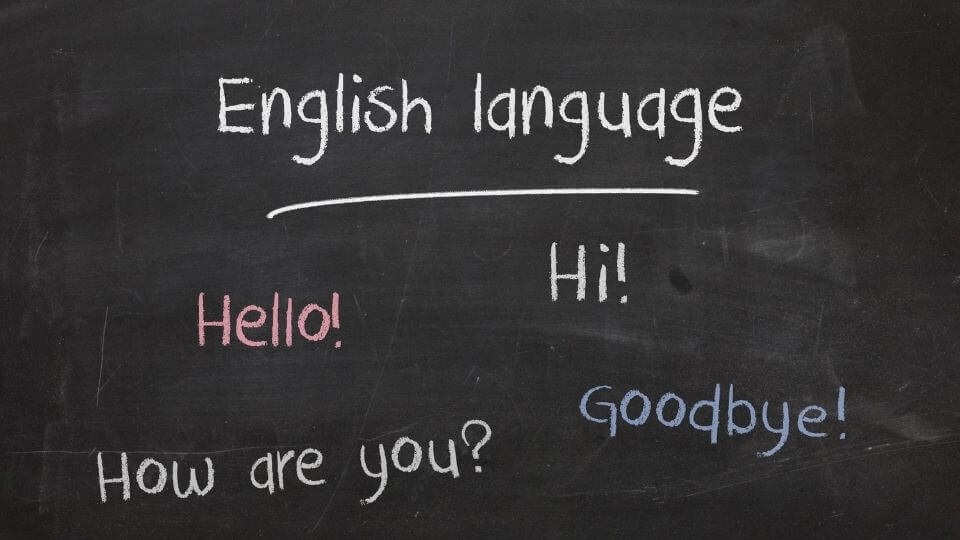Esercizi grammatica inglese: metti alla prova le tue conoscenze
Un’esercitazione di grammatica inglese non può che fare bene ogni tanto per rinfrescare le nozioni. Abbiamo già visto come velocizzare e migliorare l’ apprendimento di questa lingua straniera. Niente però può sostituire l’esercizio costante per le strutture grammaticali, diverse dall’italiano.
Il first, second e third conditional sono esempi di schemi linguistici propri dell’inglese. Mantenerli allenati è fondamentale per diventare più sciolti sia nel parlato che nello scritto. Vediamo altri esempi.
Esercitazione grammatica inglese: Present Continuous
La maggior parte degli studenti lo chiama forma in –ing, o ing form. Si tratta della forma di presente che in inglese indica azioni che avvengono nel momento stesso in cui si parla. In alcune circostanze può anche esprimere il futuro, se prestabilito. Per formarlo occorre usare il presente del verbo to be + la radice del verbo + il suffisso –ing.
Fra gli esercizi più comuni per fare esercitazione di grammatica inglese vi sono quelli per imparare quando utilizzarlo. Spesso infatti ci si confonde con il Present Simple, l’altra forma del presente. Vediamo qui qualche frase in cui scegliere l’alternativa corretta.
- If you aren’t making/don’t make mistakes, you are not doing/don’t do anything.
- Now I’m doing/do this exercise of maths.
- I am studying/study History this year at school.
- Asher and my sister are going/go to the cinema this evening.
- I am meeting/meet Sarah in two hours.
- They are having/have a good time now.
- I have/am having a dog.
- I wake up/am waking up every morning at 9 o’clock.
- I am buying/buy a new house.
- I am working/work at the museum on Sunday.
Esercizi sulla forma passiva
Un’altra esercitazione di grammatica inglese molto utile riguarda l’utilizzo del passivo. In inglese si forma usando to be al tempo indicato e aggiungendo il past participle. Quindi per la forma passiva del Present Simple di un verbo qualsiasi, ad esempio to eat, si farà am/is/are + eaten.
Per il Past Simple si dovrà usare il Past Simple di to be + il Past Participle. Nel caso del Present Perfect have/has been + Past Participle e così via.
Ecco qualche semplice esercizio:
Volgi al passivo le seguenti frasi. (Esercitazione grammatica inglese per passare da una forma all’altra)
- I was washing my dog when I heard that noise. My dog…
- My mother always cuts her hair for the summer. The hair…
- My cat broke my mobile phone this morning. My mobile phone…
- Sasha has been helping her aunt with her housework since last year. Sasha’s aunt…
- Mike has opened a new restaurant recently. A new restaurant…
- That family adopted two girls some years ago. Two girls…
- I…(saved) by the bell.
- Tomorrow you…(examined) by a specialist.
- John hopes that someday he…(love) by the woman he fell in love with.
- While he was on vacation my dad…(called) on the phone by his boss.
- The castle on the hill…(build) more than 300 years ago.
Esercizi su Zero e First Conditional
Eccoci ad una delle forme di esercitazione di grammatica inglese meno amate dagli studenti. I periodi ipotetici in inglese hanno quattro schemi prefissati a cui bisogna fare attenzione. Zero Conditional e First Conditional per fortuna sono i più semplici, ma non vuol dire che vadano sottovalutati.
Si usa la forma Zero Conditional per qualcosa che effettivamente si è verificato o qualcosa che si prende come dato di fatto. Sia la frase che esprime la condizione (con If…) sia la conseguenza contengono il Present Simple come tempo verbale. Ecco un esempio e qualche frase con cui fare pratica.
If you leave ice-cream outside of the fridge, it melts. Quindi:
- If you (not own) a driving license, you (not can) drive.
- Since you (sleep) all day, you (be) lazy.
- If you (mix) yellow and blue, you (get) green.
- Since Silvia is a doctor, she has a degree.
Il First Conditional serve per parlare della probabilità che qualcosa avvenga. Non qualcosa di certo come lo Zero Conditional ma un evento ipotetico. Questa esercitazione di grammatica inglese è fondamentale perché il First Conditional ricorre spesso nel parlato.
In questo periodo ipotetico la frase che esprime la condizione contiene il Present Simple e la frase conseguente la forma futura con will. Vediamo un esempio e un esercizio veloce.
If the bus doesn’t arrive, I’ll be late. Dunque:
- Since it (rain), the dog (not go) outside in the garden.
- If my mother (agree), I (spend) summer in the USA.
- Since my brother (not study), he (not get) good marks.
- If you (let) me down, you (regret) it for the rest of your life.
Esercizi su Second e Third Conditional
Queste due forme di periodo ipotetico sono più complesse da strutturare. L’esercitazione di grammatica inglese su quest’ambito deve essere svolta con attenzione al raccordo fra i tempi. Il Second Conditional esprime circostanze che è difficile che si verifichino o anche situazioni di fantasia. Il Third Conditional infine si usa per eventi impossibili perché illustra eventualità riferite al passato e non più realizzabili.
Per costruire il Second Conditional la frase ipotetica si costruisce con il Past Simple e la frase conseguente con would + forma base del verbo. L’errore più comune è confondere would con will, che però si usa nel First Conditional. Anche qui vedremo qualche frase con i verbi da impostare alla forma corretta.
If you were my brother, I would scold you! Quindi:
- If I (be) rich, I (buy) a waterpark and (spend) my time there.
- I think that if you (act) in a better way, the teacher (treat) you less roughly.
- If I (be) you, I (go) to the doctor anche check those symptoms.
If I had studied more, I would have passed that test! Perciò eccoci all’ultima esercitazione in lingua inglese:
- I (buy) Sam a gift if I (know) it was his birthday.
- If it (rain) the match (not be played).
- We (miss) the plane if we (take) a taxi.



